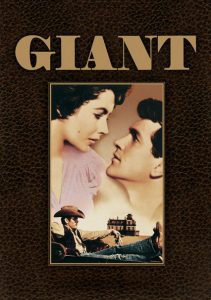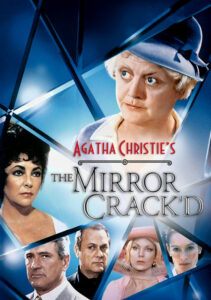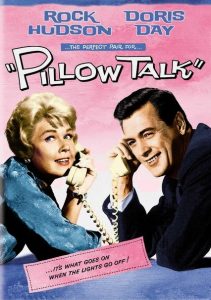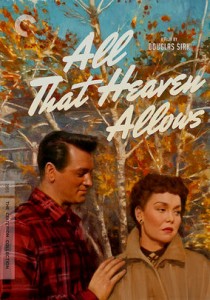Giant-1956
Director George Stevens
Starring Rock Hudson, Elizabeth Taylor, James Dean
Top 250 Films #235
Scott’s Review #898
Reviewed May 14, 2019
Grade: A
Giant (1956) is a sweeping epic firmly ensconced in both the Western genre and the dramatic field of play. The film is a flawless Hollywood production featuring three of the most recognizable stars of the time and a slew of powerful supporting actors offering rich performances and good characterizations.
The thunderous melodrama plays out over decades with the dry and dusty locale and the superb cinematography, among the finest aspects of the film experience.
Dashing and wealthy Texas rancher Jordan Bick Benedict Jr. (Rock Hudson) falls in love with and marries socialite Leslie Lynnton (Elizabeth Taylor) after a whirlwind romance in Maryland.
The pair begin their married life on Bick’s immaculate Texas ranch, but not before two central figures thwart their happiness. Jett Rink (James Dean) falls obsessively in love with Leslie while Bick’s sister, Luz Benedict (Mercedes McCambridge) despises Leslie, taking out her vengeance on Leslie’s horse.
The trials and tribulations continue as the characters age through the years.
The trifecta of talents Taylor, Hudson, and Dean make Giant the ultimate in treats as one fawn over the good looks of each (or all!) over the long three hours and eleven minutes of illustrious screen time.
Making for more powerful poignancy is that the film is Dean’s final appearance on-screen before his tragic death in a car accident, his death occurring before it was even released to the public.
Dean plays Jett to the hilt as a surly ranch hand, jealous of Bick’s riches and wanting to take Bick’s woman for himself. Jett is an unsympathetic character and the one I find the most interesting. Decades-long rivals, Jett and Bick’s lives overlap continuously as Jett finally becomes rich and dates Bick and Leslie’s daughter, much to their chagrin.
Jett is a racist, which was common in the early to mid-1900s, especially in southwestern Texas. Sadly, he never finds happiness, which is the central part of his depth.
The screenplay is peppered with meaningful and relevant social issues that provide sophistication and a humanistic approach. The film inches towards a liberal slant as the plot progresses, the most famous example occurring in the final act as Benedict’s stop at a roadside diner with a racist sign, implying the restaurant will not serve Mexicans.
Bick takes a dramatic stance and shows heart as his family, now multi-racial, needs his help. Culminating in a fight, the scene reveals the enduring love that Bick and Leslie share for one another.
Criticisms of the films’ enormous length and scope are wrong as these aspects deepen and the components I find the most appealing.
Director George Stevens never rushes through a scene or makes superfluous edits to limit running time. Instead, he allows each scene to marinate and graze like real life. Lengthy scenes play out with honest conversations and slow build-up, allowing the characters’ opinions and motivations to take shape slowly.
On the surface, a drama and western, the film can be peeled back like an onion to reveal deeper nuances. The racism, love story, and class structure ideals are mesmerizing, especially given the true-to-life humanitarian that Taylor was.
One can sit back and revel in the knowledge that she must have been enjoying the rich character.
Along with great epics like Gone with the Wind (1939), Lawrence of Arabia (1963), and The Godfather (1972) sits a film that is rarely mentioned with the other stalwarts, and that is a shame. With magnificent shot after shot of the vast Texas land and with enough gorgeous stars to rival the landscape, Giant (1956) is a must-see.
A Western soap opera with terrific writing, rife with racism, prosperity, and fortitude, the film deserves more praise than it’s given.
Oscar Nominations: 1 win-Best Motion Picture, Best Director-George Stevens (won), Best Actor-James Dean, Rock Hudson, Best Supporting Actress-Mercedes McCambridge, Best Screenplay-Adapted, Best Music Score of a Dramatic or Comedy Picture, Best Art Direction-Color, Best Costume Design-Color, Best Film Editing



